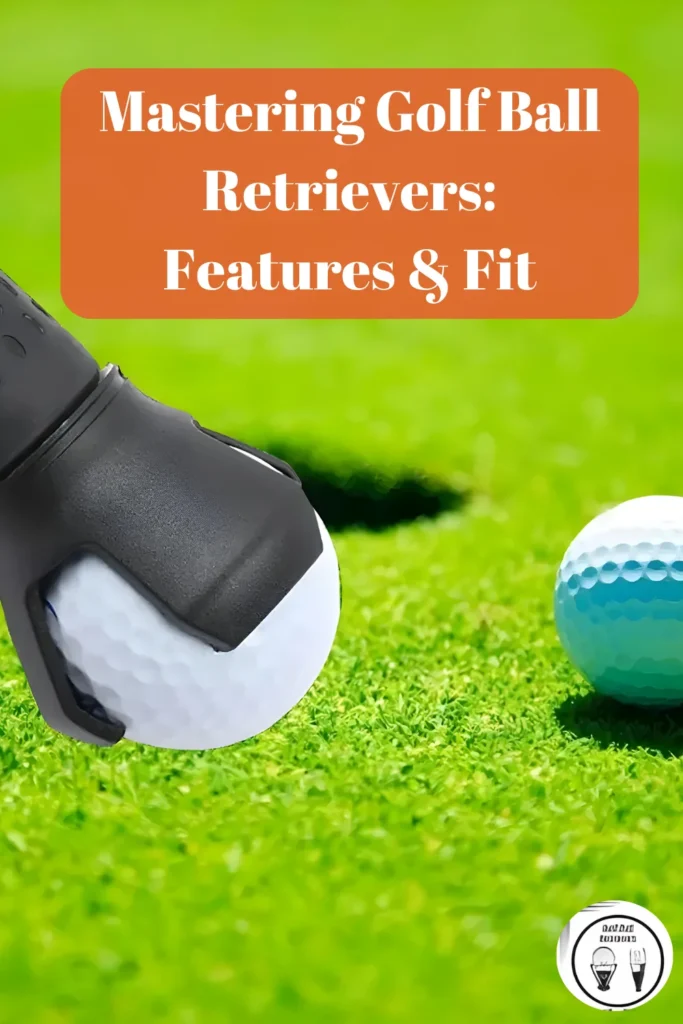Exploring the World of Golf Ball Retrievers: Features, Uses, and Choosing the Right Fit
Types of Golf Ball Retrievers
In the vast landscape of golf accessories, the golf ball retriever stands out as an indispensable tool for avid golfers.
As we delve into the diverse types available in the market, it becomes apparent that these retrievers are not merely tools for retrieving balls but integral components contributing to the overall golfing experience.

Standard Telescopic Golf Ball Retrievers
The standard telescopic golf ball retriever is the workhorse of the golf course. Its extendable design allows golfers to reach into hazards, sand traps, or dense vegetation effortlessly.
These retrievers come in various lengths, catering to the unique needs of golfers based on their preferences and playing styles.

Compact Golf Ball Retrievers
For those golfers always on the move, compact retrievers offer a blend of convenience and efficiency. With innovative folding mechanisms, these retrievers can be seamlessly tucked into golf bags or even pockets.
Their portable nature makes them an excellent choice for golfers who prioritize mobility without compromising on functionality.
Mechanical Claw Golf Ball Retrievers

Precision meets innovation with mechanical claw golf ball retrievers. The claw-like design ensures a secure grip on the ball, and the durable construction guarantees longevity.
Whether nestled in rough terrain or tight spots, these retrievers provide the finesse needed for effective ball retrieval.
Water-Ready Golf Ball Retrievers
Water hazards pose a unique challenge on the golf course, and specialized water-ready retrievers address this challenge head-on. Crafted from waterproof materials and featuring buoyancy elements, these retrievers make retrieving balls from water hazards not only possible but also efficient.
Their innovative design aids in maintaining a dry and enjoyable game, even in the face of water challenges.
Features of Golf Ball Retrievers
Choosing the right golf ball retriever goes beyond just the type. It involves considering a myriad of features that enhance usability and durability. The ergonomic grip and handle designs provide not only comfort during use but also contribute to a golfer’s overall control.
Anti-slip features ensure a secure hold, even in challenging weather conditions, adding an element of reliability to the retriever.
Telescopic retrievers, with their efficient extension and retraction mechanisms, offer ease of use, allowing golfers to focus on their game rather than struggling with their equipment.
The use of lightweight yet durable materials contributes not only to the overall performance but also to the lifespan of the retriever. Opting for corrosion-resistant materials ensures the retriever withstands the test of time and various weather conditions.
Additional features like magnetic tips and adjustable heads add a layer of versatility, making these retrievers not just tools for ball retrieval but valuable accessories for avid golfer looking to enhance their game.
Uses of Golf Ball Retrievers
Golf ball retrievers serve multifaceted purposes on the course, significantly enhancing the overall golfing experience. In on-course applications, they expedite play by quickly retrieving balls from hazards, ultimately saving time and energy.
Furthermore, they prove invaluable for players looking to minimize physical strain during a round, allowing them to stay focused on their game.
During practice and training sessions, these retrievers become essential tools for collecting balls, and facilitating targeted exercises to improve accuracy and overall performance.
Beyond personal use, golf ball retrievers play a crucial role in maintaining the course, ensuring a clean and organized environment on the driving range for all players.
Considerations for Choosing the Right Golf Ball Retriever
Selecting the right golf ball retriever involves a thoughtful process considering individual needs and preferences. For beginners, a standard telescopic retriever might be the ideal choice, providing simplicity and versatility.
Advanced players, on the other hand, might benefit from the precision offered by mechanical claw retrievers, allowing them to navigate challenging terrain with finesse.
Course conditions also play a vital role in the decision-making process. Golf ball retrievers designed for water hazards are indispensable on courses with lakes or ponds, ensuring golfers can retrieve balls without compromising their equipment.
Choosing the right type based on the specific challenges of a course contributes significantly to a seamless golfing experience.
Personal preferences, such as weight, feel, and portability, should not be overlooked. Golfers who prioritize these factors can fine-tune their selection for a more tailored and enjoyable experience on the course, aligning their equipment with their unique playing style.
